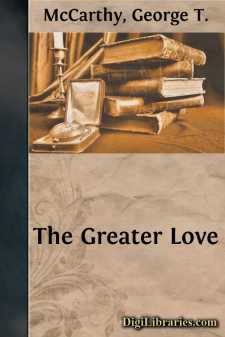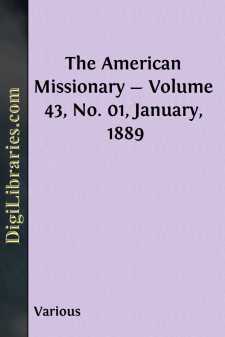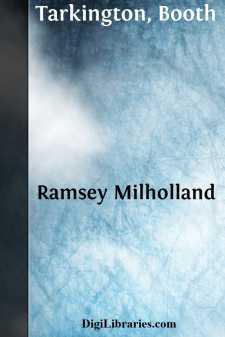Categories
- Antiques & Collectibles 13
- Architecture 36
- Art 48
- Bibles 22
- Biography & Autobiography 813
- Body, Mind & Spirit 142
- Business & Economics 28
- Children's Books 17
- Children's Fiction 14
- Computers 4
- Cooking 94
- Crafts & Hobbies 4
- Drama 346
- Education 46
- Family & Relationships 57
- Fiction 11829
- Games 19
- Gardening 17
- Health & Fitness 34
- History 1377
- House & Home 1
- Humor 147
- Juvenile Fiction 1873
- Juvenile Nonfiction 202
- Language Arts & Disciplines 88
- Law 16
- Literary Collections 686
- Literary Criticism 179
- Mathematics 13
- Medical 41
- Music 40
- Nature 179
- Non-Classifiable 1768
- Performing Arts 7
- Periodicals 1453
- Philosophy 64
- Photography 2
- Poetry 896
- Political Science 203
- Psychology 42
- Reference 154
- Religion 513
- Science 126
- Self-Help 84
- Social Science 81
- Sports & Recreation 34
- Study Aids 3
- Technology & Engineering 59
- Transportation 23
- Travel 463
- True Crime 29
Sort by:
CHAPTER I. The breaking waves dashed highOn a stern and rock-hound coast:And the woods against a stormy sky,Their giant branches tost.And the heavy night hung darkThe hills and waters o'er,When a hand of exiles moored their barkOn the wild New England shore. HEMANS. It was, indeed, a stern and rock-bound coast beneath which the gallant little Mayflower furled her tattered sails, and dropped her...
more...
1. The Way to Butterfield "Please, miss," said the shaggy man, "can you tell me the road to Butterfield?" Dorothy looked him over. Yes, he was shaggy, all right, but there was a twinkle in his eye that seemed pleasant. "Oh yes," she replied; "I can tell you. But it isn't this road at all." "No?" "You cross the ten-acre lot, follow the lane to the...
more...
IN MEMORIAM: PAULINE JOHNSON I cannot say how deeply it touched me to learn that Pauline Johnson expressed a wish on her death-bed that I, living here in the mother country all these miles away, should write something about her. I was not altogether surprised, however, for her letters to me had long ago shed a golden light upon her peculiar character. She had made herself believe, quite erroneously,...
more...
CHAPTER ILEAVE HOME—BASE HOSPITAL NO. 11—CAMP DODGE "Very well then, Father, you have my permission and best wishes." How the approving words and blessing of good Archbishop Mundelein thrilled me that memorable morning in 1918. The rain-washed freshness of April was abroad in Cass street; and the soft breeze, swaying the curtain of the Chancery window where he was seated, brought incense of...
more...
by:
Thomas S. Chard
ACROSS THE SEA. I.—CHILDHOOD. Ah! who can speak that country whence I fled?None but a lover may its beauty know,None but a poet can its rapture sing;And e'en his muse, upborne on Fancy's wing,Will grieve o'er beauties still unnoticed,O'er raptures language is too poor to show. Fore'er remains the land where children dwell,Earth's fairest mem'ry and its...
more...
Our Best Friend IN A log cabin in the mountains lived a little boy. He often played near the house, but did not go far away. Near the house were many trees and rocks and among these wild animals stayed. DOWN BY THE SPRING One day the boy missed his mama and thought he would try to find her. He went down the path toward the spring, where he had often gone after water. He went on and on. Finally he...
more...
by:
Various
American Missionary Association. We present to our readers, on the opposite page, a picture of Mr. Daniel Hand from a photograph taken some time ago. It presents the likeness of a man of fine physical proportions and with energy and intelligence impressed on the features. The signature at the bottom of the picture is copied from one of Mr. Hand's recent letters, and shows the remarkable physical...
more...
by:
Booth Tarkington
"Yes, we'll all feel gay when Johnnie comes marching home again," he finished, with a musing chuckle. "Did you, Grandpa?" the boy asked. "Did I what?" "Did you all feel gay when the army got home?" "It didn't get home all at once, precisely," the grandfather explained. "When the war was over I suppose we felt relieved, more than anything else."...
more...
CHAPTER I INTRODUCTION I think that some of you have been with me at Willow Farm before to-day. When we were there we went into the farmer's fields in early spring, and saw the men and horses at work with ploughs and harrows. A little later on we saw some of the crops sown, such as barley and turnips. In summer we were in the hay-and corn-fields, and later still we saw the ricks being made. To-day...
more...
by:
Honore de Balzac
Z. MARCAS I never saw anybody, not even among the most remarkable men of the day, whose appearance was so striking as this man's; the study of his countenance at first gave me a feeling of great melancholy, and at last produced an almost painful impression. There was a certain harmony between the man and his name. The Z. preceding Marcas, which was seen on the addresses of his letters, and which...
more...











